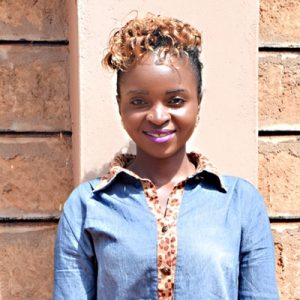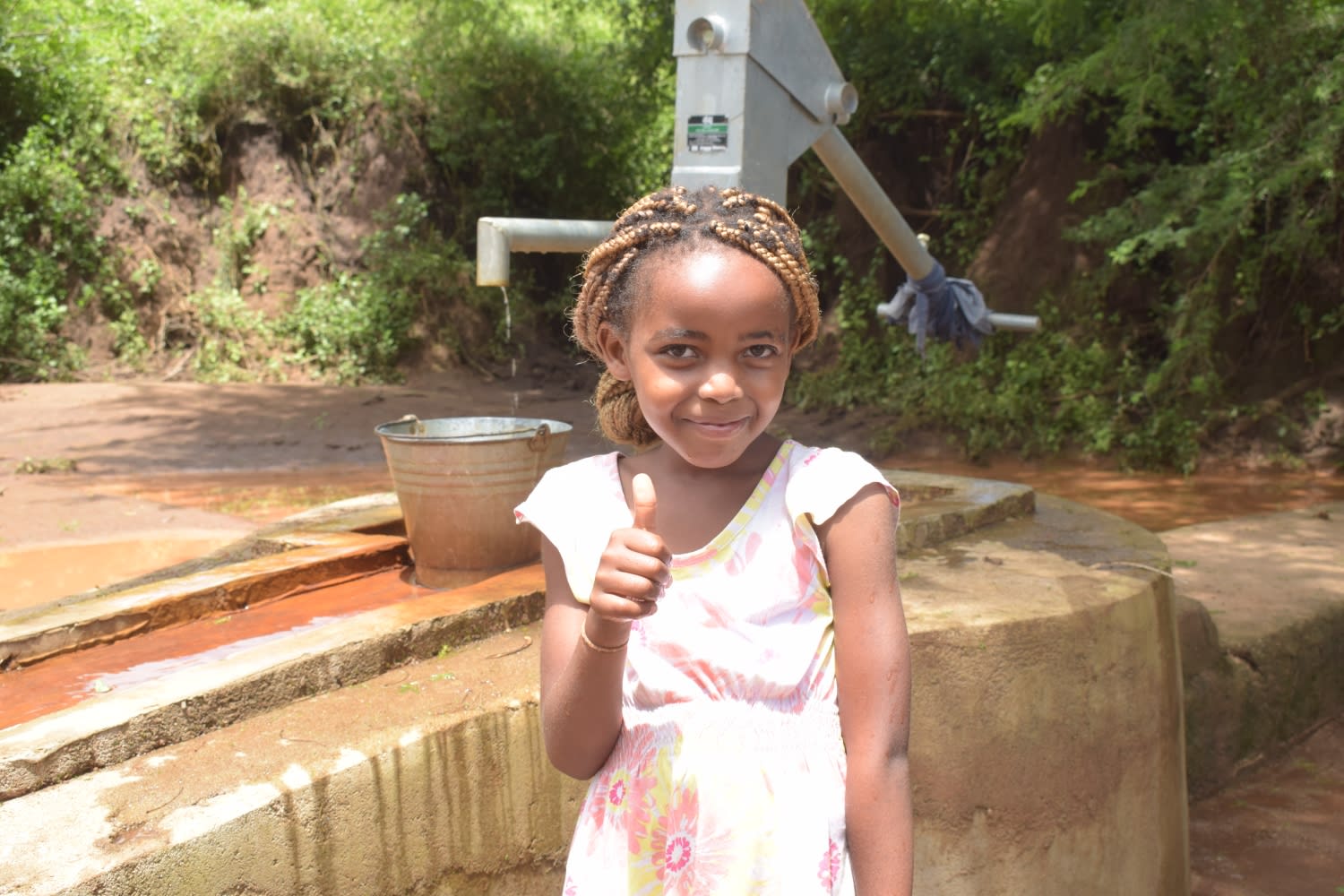Project Updates
August, 2020: Through Their Eyes: COVID-19 Chronicles with Mary Mbilu
This post is part of a new series by The Water Project meant to highlight the perspectives and experiences of the people we serve and how the COVID-19 pandemic is impacting them. We invite you to read more of their stories here.
Our team recently visited Tulimani community to conduct a COVID-19 prevention training and monitor their water point. We checked in on the community and asked how the pandemic is affecting their lives.
It was during this most recent visit that Mary Mbilu shared her story of how the coronavirus has impacted her life.

Mary Mbilu
Our team met Mary outside her home to conduct the interview. Both our staff and Mary observed physical distancing and other precautions throughout the visit to ensure their health and safety. The following is Mary’s story in her own words.
How has COVID-19 impacted your family?
My merry go rounds have stopped due to the government directive banning all gatherings of people, no access to local market days, which were also excluded. My school-going children have been primarily affected since schools are closed, and they cannot access online classes because we lack the required gadgets. Again, our churches have been closed.
What steps is Kenya taking to prevent the spread of the virus?
The government has imposed movement curfews across the country with no movement of people being allowed past 7 PM up to 5 AM. Counties with the virus have also been locked down. No travel is allowed in and out of the counties to control its spread to other areas. The government, through the local chiefs, is scouting for families without any sources of income for a government food relief program.
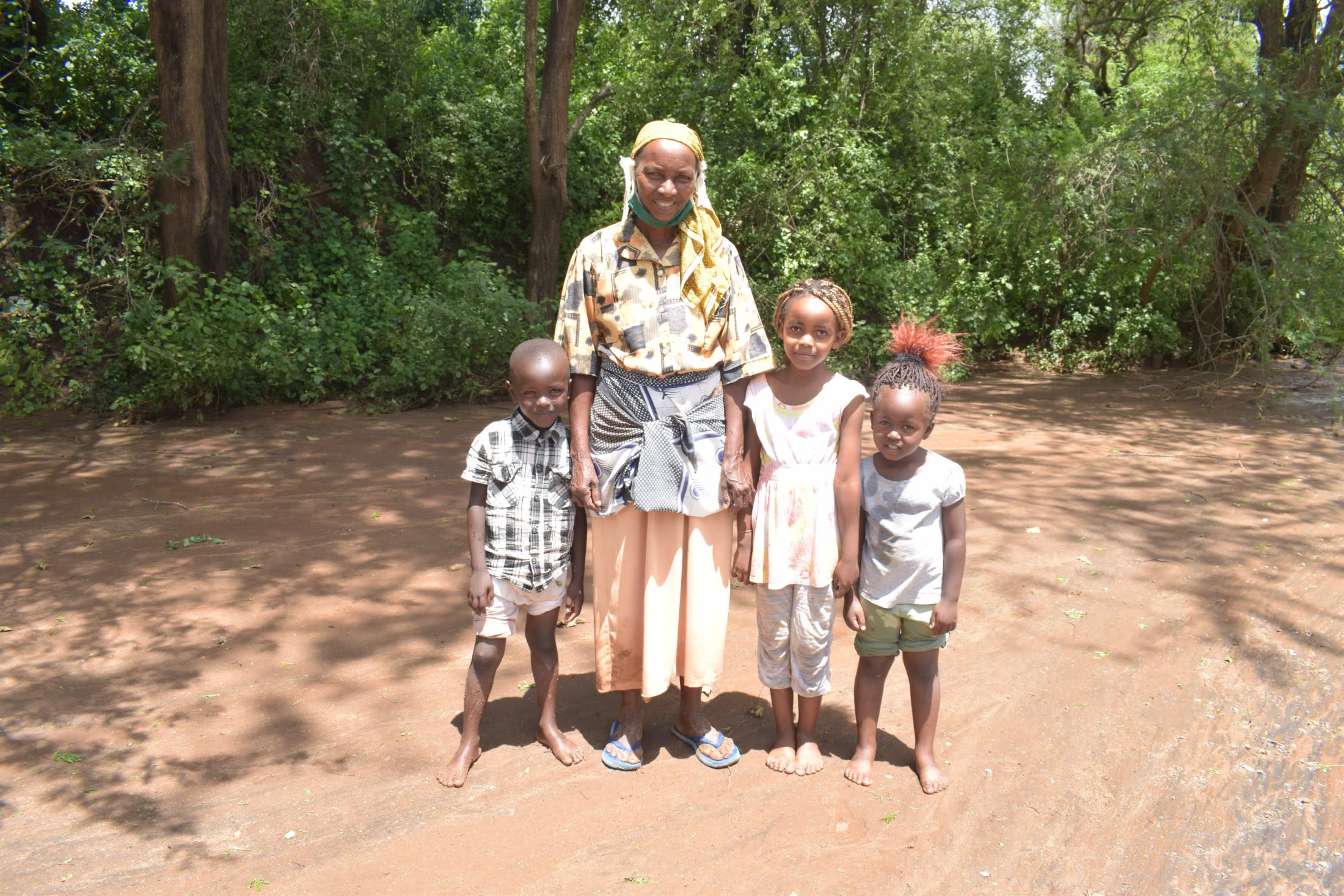
Since the outbreak of COVID-19 in Kenya, has fetching water changed for you because of restrictions, new rules, or your concerns about the virus?
Getting water has improved since completion of the well, water is readily available from within near my home since the well is at a stone’s throw distance.
How has having a clean water point helped you through the pandemic so far?
Having a well is helping us very much in these times, water is essential in making us adhere to government directives of washing hands with soap and clean water. We are using water from the well with my family to maintain acceptable hygiene standards and for drinking.
How has getting food been at this time?
I am able to get essential food items from my farm because the rains have been good, and the harvests were bumper in the last season. I have maize and cowpeas, and the seeds supplied by ASDF are doing well in the ongoing rains. Access to food items bought from the market has reduced because of the lockdown and closure of market days, but we are surviving with what is available.

June, 2020: COVID-19 Prevention Training Update at Tulimani Community
Our teams are working on the frontlines of the COVID-19 pandemic. Join us in our fight against the virus while maintaining access to clean, reliable water.

We are carrying out awareness and prevention trainings on the virus in every community we serve. Very often, our teams are the first (and only) to bring news and information of the virus to rural communities like Tulimani, Kenya.
We trained community members on the symptoms, transmission routes, and prevention of COVID-19.
Due to public gathering concerns, we worked with trusted community leaders to gather a select group of community members who would then relay the information learned to the rest of their family and friends.

We covered essential hygiene lessons:
- Demonstrations on how to build a simple handwashing station
- Proper handwashing technique
- The importance of using soap and clean water for handwashing
- Cleaning and disinfecting commonly touched surfaces including at the water point.

We covered COVID-19-specific guidance in line with national and international standards:
- Information on the symptoms and transmission routes of COVID-19
- What social distancing is and how to practice it
- How to cough into an elbow
- Alternative ways to greet people without handshakes, fist bumps, etc.
- How to make and properly wear a facemask.
During training, we installed a new handwashing station with soap near the community’s water point,

Due to the rampant spread of misinformation about COVID-19, we also dedicated time to a question and answer session to help debunk rumors about the disease and provide extra information where needed.
Water access, sanitation, and hygiene are at the crux of disease prevention. You can directly support our work on the frontlines of COVID-19 prevention in all of the communities we serve while maintaining their access to safe, clean, and reliable water.

May, 2020: COVID-19 Prevention Training Update at Kithumba Community
Our teams are working on the frontlines of the COVID-19 pandemic. Join us in our fight against the virus while maintaining access to clean, reliable water.

We are carrying out awareness and prevention trainings on the virus in every community we serve. Very often, our teams are the first (and only) to bring news and information of the virus to rural communities like Kithumba, Kenya.
We trained community members on the symptoms, transmission routes, and prevention of COVID-19.
Before there were any reported cases in the area, we worked with trusted community leaders and the Water User Committee to gather community members for the training. At the time, social distancing was a new concept and one that challenges cultural norms. Although community members were hesitant to adopt social distancing during the training, we sensitized them on its importance and effectiveness in combating the spread of the virus
We covered essential hygiene lessons:
- Demonstrations on how to build a simple handwashing station
- Proper handwashing technique
- The importance of using soap and clean water for handwashing
- Cleaning and disinfecting commonly touched surfaces including at the water point.

We covered COVID-19-specific guidance in line with national and international standards:
- Information on the symptoms and transmission routes of COVID-19
- What social distancing is and how to practice it
- How to cough into an elbow
- Alternative ways to greet people without handshakes, fist bumps, etc.
- How to make and properly wear a facemask.

During training, we installed a new handwashing station with soap near the community’s water point.
Due to the rampant spread of misinformation about COVID-19, we also dedicated time to a question and answer session to help debunk rumors about the disease and provide extra information where needed.
Water access, sanitation, and hygiene are at the crux of disease prevention. You can directly support our work on the frontlines of COVID-19 prevention in all of the communities we serve while maintaining their access to safe, clean, and reliable water.

December, 2019: Tulimani Community Hand-Dug Well Complete!
Tulimani Community, Kenya now has a new source of water thanks to your donation. A hand-dug well was constructed adjacent to a sand dam (go here to check it out). The dam was constructed on the riverbed, which will build up sand to raise the water table and naturally filter water. Recent rains have helped the dam begin to build up sand and store water.
It could take up to 3 years of rain (because sometimes it only rains once a year!) for this sand dam to reach maximum capacity. As the sand dam matures and stores more sand, a supply of water will be available for drinking from the well. With this water, the surrounding landscape will become lush and fertile.
Hand-Dug Well
Construction for this well was a success!
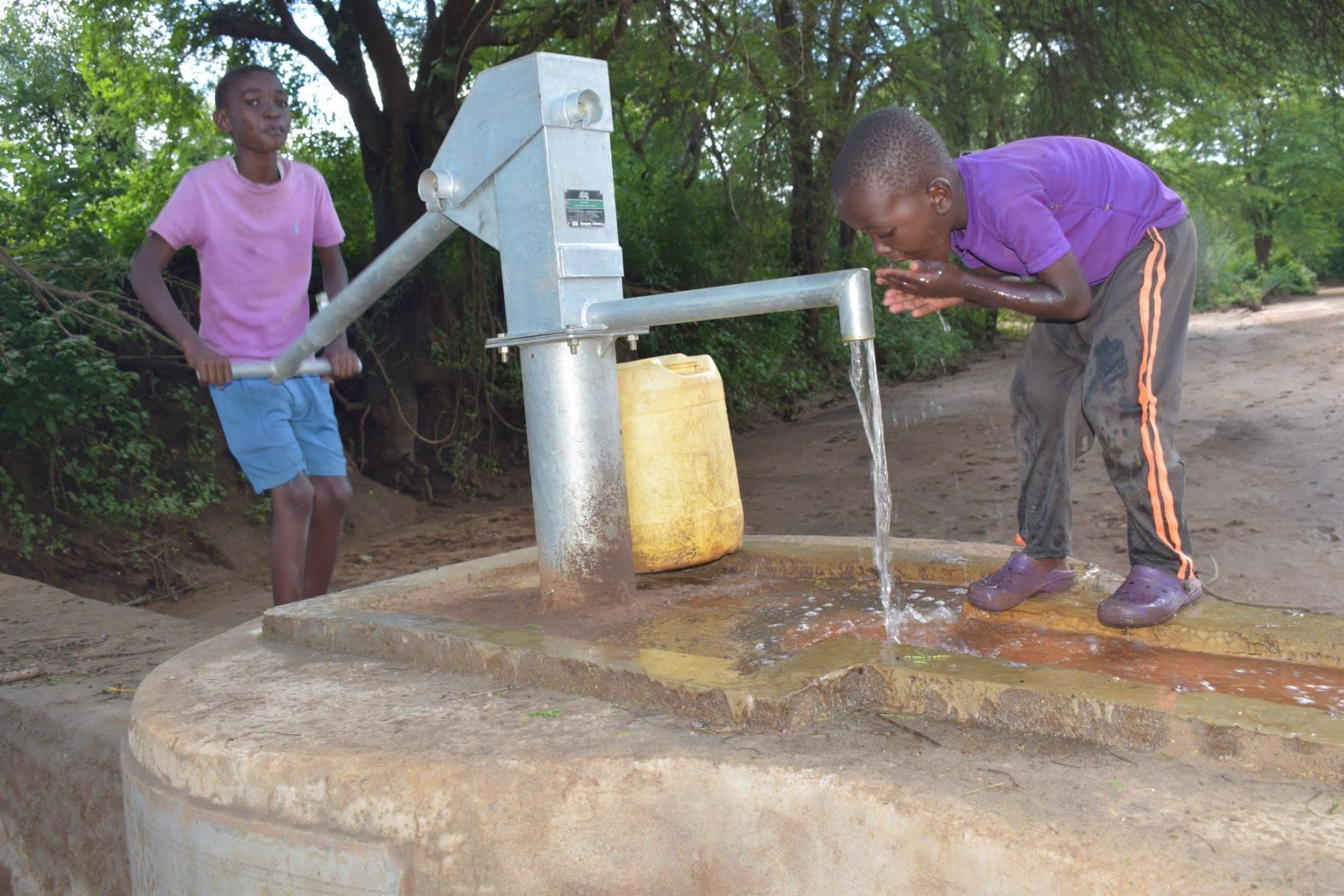
We worked with the Kamulo Self-Help Group for this project. The members - notably all women in this group - and their families contributed materials and physical labor to complete the project. In addition, they were trained on various skills such as bookkeeping, financial management, project management, group dynamics, and governance. We also conducted a hygiene and sanitation training to teach skills like soapmaking and to help improve behaviors such as handwashing.
"We have made a mark in the history of this locality by bringing water close to the people through this water project. It was not an easy task but through God's guidance and protection we have made it," said Mary Mbilu upon completion of the project.
"The long walks in search of water will be a story of the past in the advent of this new water point. We are all happy for having made it possible through our commitment and hard work."

The community group faced some challenges which affected the pace of construction leading to delays in the timeline of the project's completion. At the heart of the delay was that construction was all taking place during the dry season, so getting enough water for each step of construction was a constant challenge that contributed to the slow pace. Despite these added difficulties, the women persisted and were able to complete the project.
When an issue arises concerning the water project, the group members are equipped with the necessary skills to rectify the problem and ensure it works appropriately. However, if the issue is beyond their capabilities, they can contact our team of field officers to assist them.
Hand-Dug Well Construction Process
We delivered the experts, materials, and tools, but the community helped get an extraordinary amount of work done too. They collected local materials to supplement the project, including sand, stones, and water.

A hole 7 feet in diameter is excavated up to a recommended depth of 25 feet. (Most hand-dug wells do not reach that depth due to the existence of hard rocks between 10-18 ft.).

The diameter shrinks to 5 feet when construction of the hand-dug well lining is completed. This lining is made of brick and mortar with perforations to allow for water to seep through. Sand builds up around the well walls, which will naturally filter the rainwater that is stored behind the dam.
Once the construction of the lining reaches ground level, a precast concrete slab is laid on top and joined to the wall using mortar. 4 bolts for the hand-pump are fixed on the slab during casting. The concrete needs to dry for 2 weeks before the pump is installed.
The mechanics arrive to install the pump as community members watch, learning how to manage simple maintenance tasks for themselves.
The well is then given another few days after installing the pump to allow the joints to completely dry. The pump was installed level with the top of the sand dam. As the dam matures, sand will build up to the top of the wall. Until then, people will climb the concrete steps to get their water.
New Knowledge
The Mbondoni area field officer Bernadette Makau was informed of the date scheduled for training. She reached the group's Chair, Madam Mbilu Mutumba, through a phone call, and Mutumba then informed all of her group members on the venue and dates for training. The area village administrator and village elders were also invited.

The training was held in Chair Mutumba's homestead under a tree. The tree did not provide enough shade for a whole day, however, so our team had to move several times to stay under the shade. During the third day, we were interrupted by the rains.
The trainer conferred with the field staff about their previous visits to households and interviews with community members to determine which topics the community still could improve upon.
They decided to train on topics including health problems in the community; good and bad hygiene behaviors; how diseases spread and their prevention; choosing sanitation improvements; choosing improved hygiene behaviors; planning for behavioral change; handwashing; and soapmaking.

All of the people in attendance actively participated in the training topics. One of the most memorable topics for the group was the '3 pile sorting' exercise where everyone worked together to determine which hygiene and sanitation behaviors are good, bad, and neutral. This activity was said to be memorable by the members because they said that it was the best way to identify behaviors that caused a lot of diseases to them and that it enlightened them.

"This training will bring us so many positive changes as far as hygiene and sanitation are concerned. For instance, we will improve handwashing practices for both adults and young ones. We will also install sanitation infrastructures at our home and places where we meet," said Mary Mbilu.
"We will also ensure that our water sources are cleaned throughout and that there’s a functional latrine, and ensure that we treat our drinking water."
From the action plan prepared by the members of this group, it was clear that they were ready to improve on their sanitation and hygiene. Much is expected from this group as far as hygiene and sanitation are concerned.
Thank you for making all of this possible!
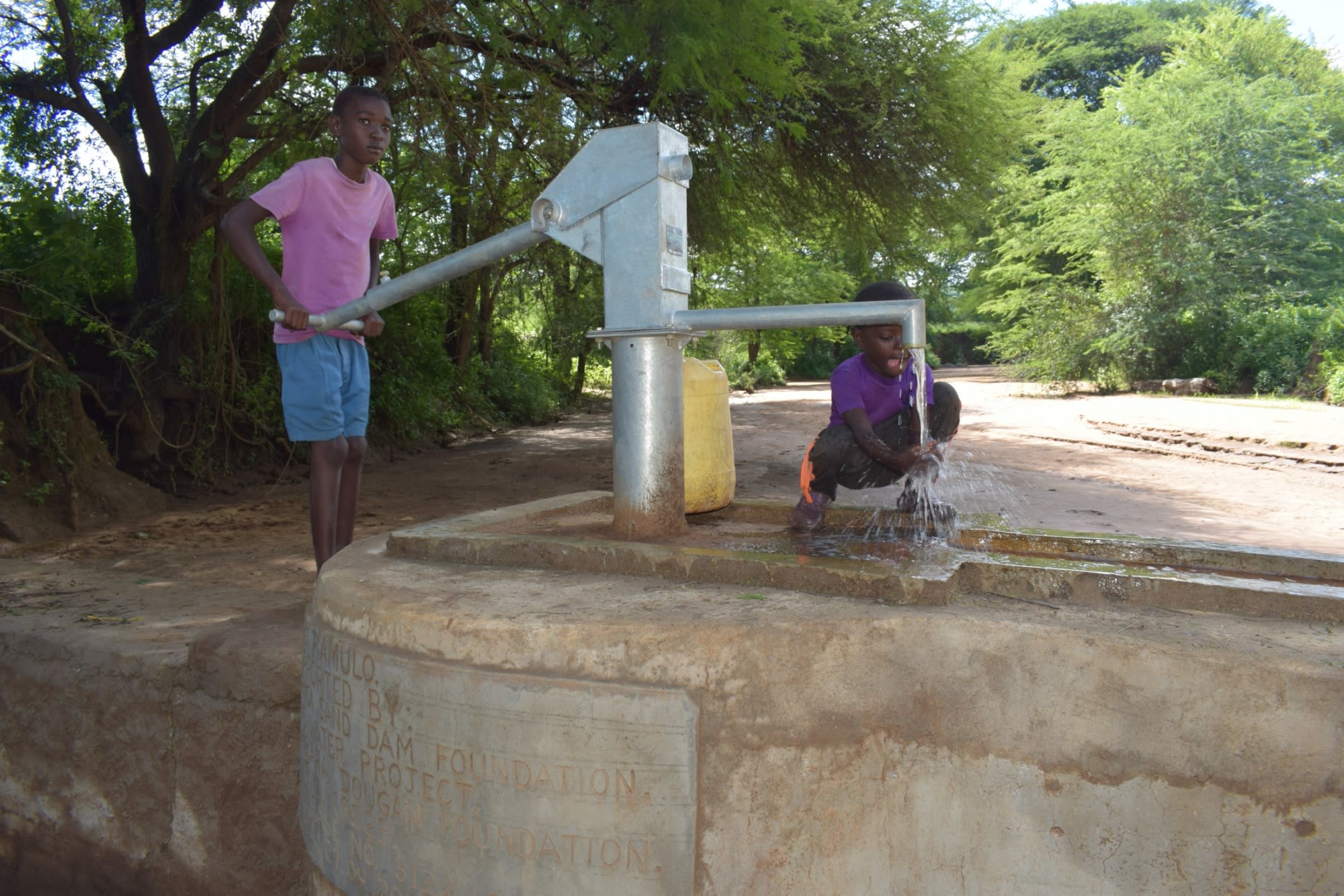
July, 2019: Tulimani Community Well Underway!
Dirty water from open scoop holes is making people in Tulimani sick. Thanks to your generosity, we’re working to install a clean water point and much more.
Get to know this community through the narrative and pictures we’ve posted, and read about this water, sanitation and hygiene project. We look forward to reaching out with news of success!

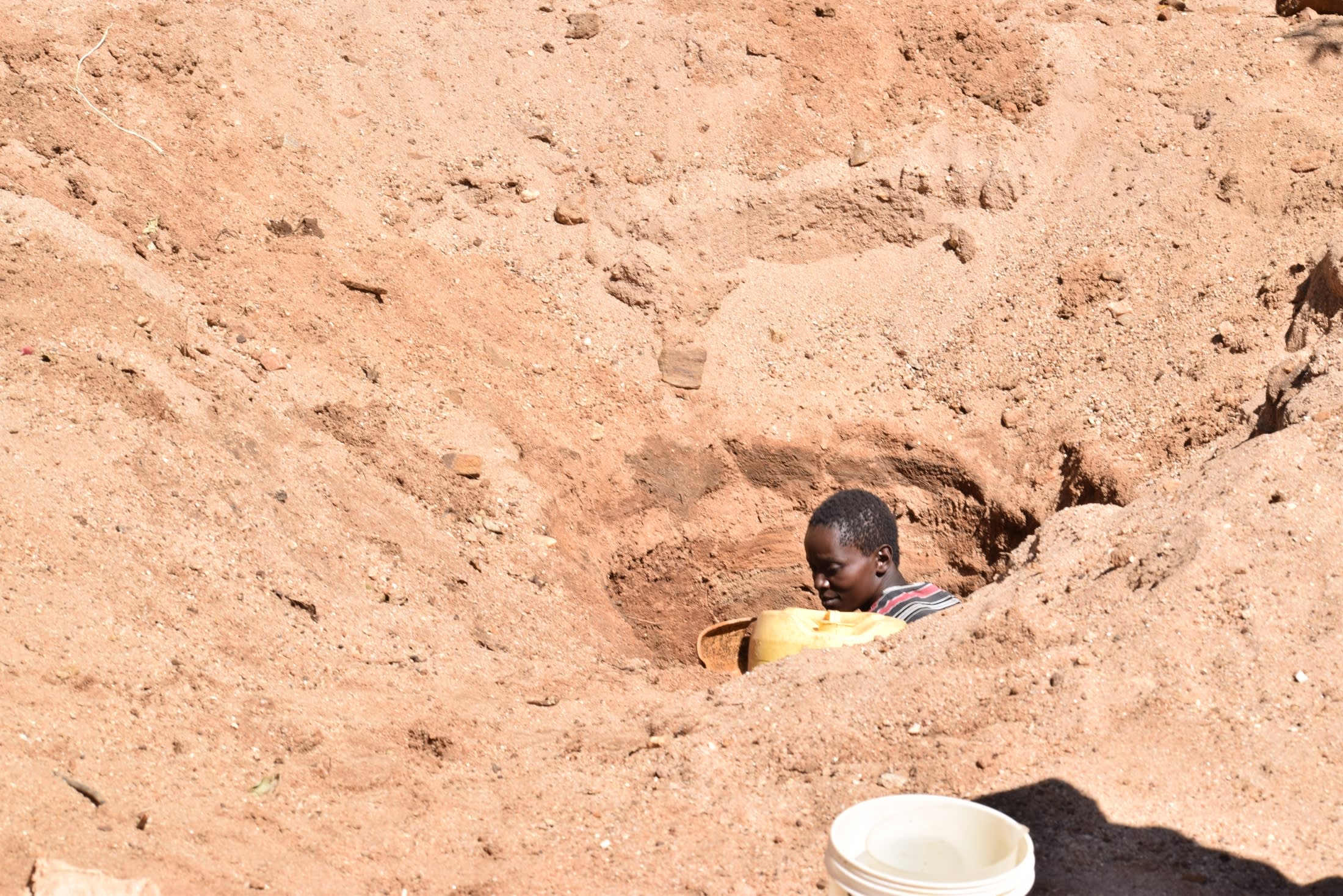

 Protected Dug Well
Protected Dug Well
 Rehabilitation Project
Rehabilitation Project








